
LECTURES
This year the course will focus on the Nano/Medicine interface. Lectures and speakers have been carefully selected in order to provide a perceptive overview, as well as an in-depth knowledge on the different players involved in this interplay: nanomedicine, inflammation, tissue repair, cancer and biomaterials. Speakers will have allocated presentations of 45 minutes, followed by a 15 minutes of interactive discussion period.
ALREADY Confirmed SPEAKERS
 |
África González-Fernández Prof. África González Fernández (MD, PhD, Immunologist) was born in Madrid (Spain) and studied Medicine and Surgery in the University of Alcalá de Henares (Madrid, Spain). She obtained her PhD in the same University and performed the speciality in Immunology as Medical Internal resident (4 years) at the Hospital Puerta de Hierro (Madrid). She spent 4 years as post doc with Dr. Cesar Milstein (Nobel Prize winner for the monoclonal antibody technology) in the Laboratory of Molecular Biology-Medical Research Council (LMB-MRC) in Cambridge (UK). |
She returned to Spain becoming Full Professor of Immunology in the University of Vigo (Spain), leading a research group in the field of immune response to vaccines, Nanomedicine, toxicity and immunogenicity to nanomaterials. Currently she is Director of the Biomedical Research Center (CINBIO) in the University of Vigo and coordinator of an Institutional project called BIOCAPS funded by the 7th EU program with over 4,7 million euros. She has published over 100 papers and book chapters, some of them in very top journals such as Nature, Cell, ACS-Nano, PNAS… and she is regularly invited to give conferences in several meetings. She has 4 patents and is the promoter of the spin-off company called “NanoImmunoTech”, located in Vigo and Zaragoza (Spain). |
|
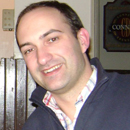 |
Bruno Sarmento Bruno Sarmento graduated in Pharmaceutical Sciences in 2002 at the University of Porto and obtained his PhD in Pharmaceutical Technology in 2007 at the University of Porto, Portugal in collaboration with the Queen’s University, Canada, University of Copenhagen, Denmark and University of Santiago de Compostela, Spain. In 2008 he became Assistant Professor of Pharmaceutical and Biopharmaceutical Technology at ISCS-Norte, Gandra, Portugal. |
In 2012 he became Affiliated Researcher at Institute of Biomedical Engineering (INEB), Porto, Portugal. His current research is focused on the development of functionalized nanomedicines and their application in the pharmaceutical and biomedical fields. He uses in vitro cell models as a tool to evaluate the transport of drugs and nanoparticles and perform in vitro/in vivo correlation. In particular, he has specific interest in mucosal tissue engineering models for validation of new functionalized nanoparticles for diagnosis and therapy. He has studied the properties of nanoparticles, modulating their mucoadhesion behavior, ultimately related with passive targeting to gastrointestinal and pulmonary mucosae. The active targeting approach used has consisted on the tethering of ligand molecules (antibodies and sugars) on the surface of nanoparticles to increase the binding to specific membrane receptors upregulated in key local effector cells. His serves as editorial board member of several international journals and supervises several post-docs, PhD, and master students. He is also an active member of international associations (AAPS, CRS, EUFEPS, EFSD, FIP, BRG) and collaborates in post-graduate programs at national and international level on the field of biotechnology and health. |
|
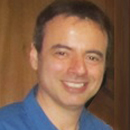 |
Celso Reis Celso A. Reis is a BSc in Biology (1991), MSc in Oncobiology (1993), and received his PhD in Human Biology (1998) at the Faculty of Medicine at the University of Porto. He had a postdoctoral training for 3 years at the University of Copenhagen, Denmark. Celso A. Reis is a Group leader at the Instituto de Investigação e Inovação em Saúde (I3S), and at the Institute of Molecular Pathology and Immunology of the University of Porto (Ipatimup) since 2002. |
He is a Professor at the University of Porto. He is specialized on the field of glycobiology in human health and diseases, with major focus on understating the role of glycans in cancer. He has published 112 original peer-reviewed scientific articles, several book chapters, patents and reviews. His current H-index is 34 (Scopus) and his research work has been cited more than 3300 times. He has been the P.I. of several national and international projects, including projects funded by FCT, the European Union, AICR (Worldwide Cancer Research), and he has won the prestigious Institut Merieux Grant. He is a member of the Life and Health Sciences Council of FCT. He has been the Chair of the International Glycosyltransferase Meeting in 2014, and has acted as the national chair representing Portugal for the International Glycoconjugate Organization since 2012. |
|
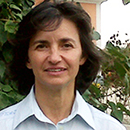 |
Anabela Cordeiro da Silva
Anabela Cordeiro-da-Silva is Associate Professor with aggregation in Immunology at Faculty of Pharmacy in University of Porto and head of Parasite Disease Group at IBMC. |
| She graduated in Pharmaceutical Sciences in 1990 and received in 1992 a MsC degree in Immunology and in 1997 a PhD degree in Biomedical Sciences, speciality of Immunology by the University of Porto. She has been working with protozoan parasites responsible for important human diseases such as Leishmania, Trypanosoma brucei and Trypanosoma cruzi. Her group is interested in the study on the mechanisms used by parasites to overcome host defences. She has contributed to the identification of virulent factors and potential drug targets in Trypanosomatids and contributed to the search for vaccine and target specific inhibitors. More recently, her group has studied the role of nanoformulations to the delivery of classical and new drugs and also their role in modulating the immune system. |
|
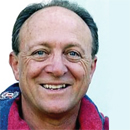 |
John H. Barker Dr. Barker’s research begins and ends with patients Initially trained as a surgeon, Dr. Barker works closely with clinicians, scientists, industry partners,and entrepreneurs to translate research ideas into better treatments for patients. |
Examples include; adapting human umbilical cords for use as conduits to bypass obstructed arteries and salvage ischemic limbs, electrically stimulating leg muscle flaps to create neo-sphincters to treat urinary and fecal incontinence, and human hand a face transplantation to treat amputees and patients suffering with severe facial disfigurement. These ideas-turned-treatments have provided reconstructive surgeons with valuable new treatments to improve the lives of their patients. |
|
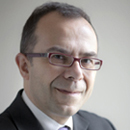 |
Josep Samitier Josep Samitier is Director of IBEC and Full Professor in the Physics Faculty (Electronic Dep.) University of Barcelona. From March 2001 to June 2005 Prof. Samitier was Deputy Head of the Barcelona Science Park (PCB).From February 1984 to June 1985 he was visiting research fellow at the Philips Electronic Laboratory, Paris, France. |
| Prof. Samitier is the coordinator of the Spanish Platform on Nanomedicine. He received the Barcelona city Prize for the 2003 of the Barcelona Council in the area of technology. |
|
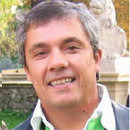 |
Luís António Dias Carlos Luís António Dias Carlos got his Ph.D. in physics from the University of Évora, Portugal, in 1995 working on photoluminescence of polymer electrolytes incorporating lanthanide salts. Currently, he is Full Professor at the University of Aveiro, Physics Department. |
Since 2009 he has been the vice-director of the CICECO - Aveiro Institute of Materials, Portugal (with ca. 420 people, CICECO, http://www.ciceco.ua.pt/, is one of the largest European institute in the Materials and Nano fields). |
|
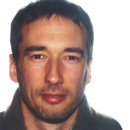
|
Olivier De Wever Olivier De Wever is currently a Senior Researcher and an Associate Professor at the Laboratory of Experimental Cancer Research at the University Hospital of Ghent (Belgium). He graduated in Pharmacy (great distinction) by the University of Ghent in 1999 and developed his PhD research in the Laboratory of Experimental Cancerology defining “A road map for cancer invasion: implication of myofibroblasts and other factors”, under the supervision of Marc Mareel and Marc Bracke (2004). He performed his PostDoctoral Research in the framework of the European project METABRE and supported by Ghent University Research Council and by Flanders Fund for Scientific Research. His work is being dedicated to understand the role of the tumour microenvironment, namely fibroblasts/myofibroblasts and adipocytes on cancer cell invasion and metastasis, dissecting the associated-molecular mechanisms. Olivier De Wever’s team is also expert on the role of microvesicles and exosomes on the cancer cells-microenvironment crosstalk. Besides the several prizes he already received, he is author of 87 publications in peer-reviewed A1 journals, 12 of which as first author and 20 as last author. |
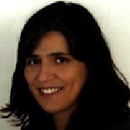 |
Raquel M. Gonçalves Raquel M. Gonçalves is an Assistant Researcher at the Institute of Biomedical Engineering (INEB). She graduated in Chemical Engineering at Instituto Superior Técnico (IST), Lisbon (2001), and got a PhD in Biotechnology (Hematopoietic Stem Cell Expansion) in the same institution, under the supervision of Prof. Joaquim Sampaio Cabral, in collaboration with the Department of Animal Biotechnology at University of Nevada, Reno, USA (2006). |
She moved to INEB in 2007, where she was first postdoc in the group of Prof. Mário Barbosa. In 2009, she became assistant investigator in his group. |
|
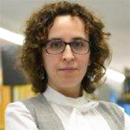 |
Sónia Melo Sonia Melo is Principal Investigator at IPATIMUP and Invited Faculty at the MD Anderson Cancer Center. She graduated in Biochemistry Porto Faculty of Sciences (2005) and developed her PhD research as part of the GABBA PhD Program at the Spanish National Institute of Health (CNIO) and Institut d'Investigació Biomèdica de Bellvitge, under the supervision of Manel Esteller (2010). |
She performed a four years postdoctoral training at Harvard Medical School (Boston, USA) and MD Anderson Cancer Center (Houston, USA) before moving to the Genetic Dynamics of Cancer Cells Department at IPATIMUP (2014). Sonia Melo is an expert on microRNAs and exosomes biology in cancer. She reported for the first time the presence of genomic DNA in exosomes and described for the first time a cell independent function of exosomes, to synthetize microRNAs. Sonia’s current research goals are the crosstalk between tumor cells mediated by exosomes and how these events lead to the overall dynamics of a tumor. |
|
|
|
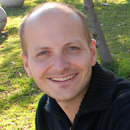 |
Xavier Trepat Xavier Trepat received a BSc in Physics in 2000 and a B.Sc in Engineering in 2001. In 2004 he obtained his PhD from the Medical School at the University of Barcelona. He then joined the Program in Molecular and Integrative Physiological Sciences at Harvard University as a postdoctoral researcher. In 2008 he became a Ramon y Cajal researcher at the University of Barcelona and the Institute for Bioengineering of Catalonia (IBEC), and in January 2011 he became an ICREA Research Professor. |
His research at IBEC focuses on integrative tissue dynamics and cytoskeletal mechanics. He has awarded three grants by the European Research Council (ERC Starting Grant 2010-2014, ERC Consolidator Grant 2015-2019, and ERC Proof of Concept Grant 2014-2015). |
|
i3S
INSTITUTO DE INVESTIGAÇÃO
E INOVAÇÃO EM SAÚDE